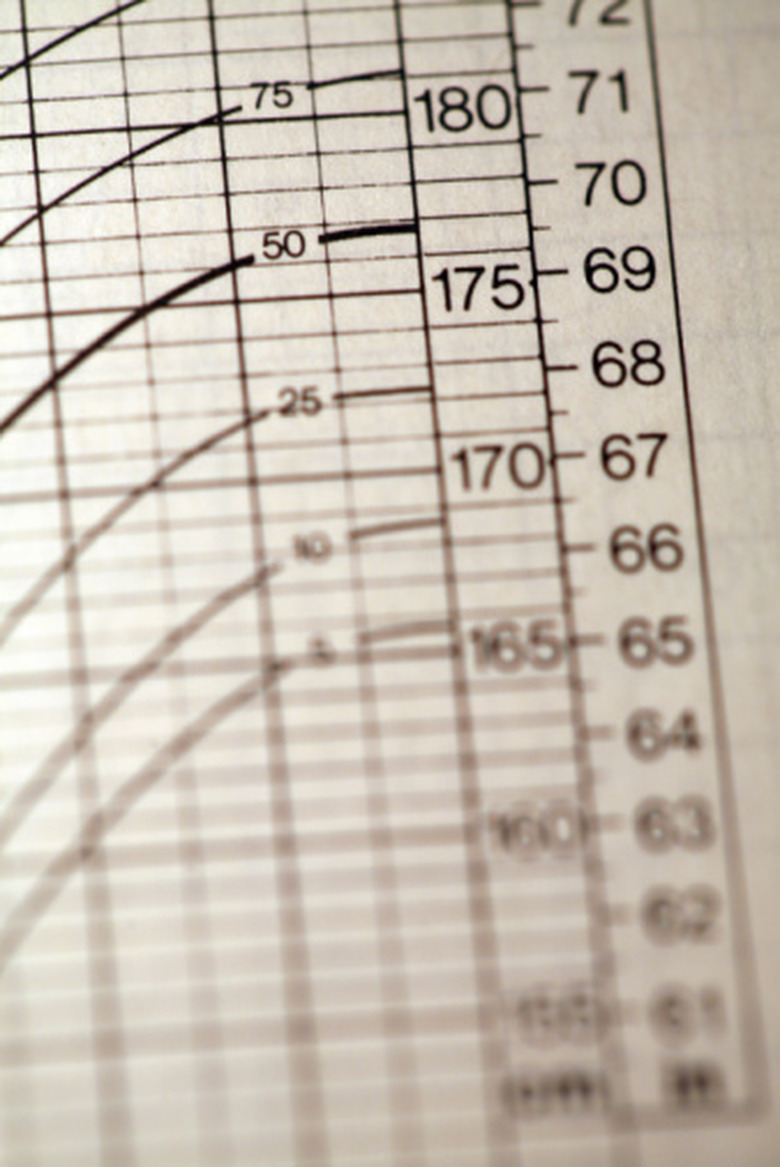The Uses Of Polynomials
Polynomials are a type of math equation that multiplies, adds or subtracts a changing number, called an unknown, by an unchanging number, called a constant. For example, in the polynomial equation y = 3x, 3 is the constant and "x" is the unknown. In this case, to determine the "y-value" for any chosen "x" value, you multiply the chosen value by 3. So, if you choose an x-value of "5," then the y-value is 3*5 = 15.
Higher-Level Math Classes
Higher-Level Math Classes
Polynomials have implications to all higher-level mathematics courses. They serve as an important tool for factoring trigonometric functions, and make up the basis of the power rule in differential calculus. Mathematicians draw on different types of polynomial series to calculate slopes and mathematical approximations. Without a substantial knowledge of polynomial theory, success in any higher-level mathematics class would be very difficult.
Parabolas
Parabolas
The "x" and "y" values of a polynomial make a point on a graph. In the "x^2" polynomial, you find the y-value by squaring the chosen x-value. For example, if the chosen x-value is "2," then the y-value is 2^2 = 2*2 = 4. When you draw all "x" and "y" values of the x^2 polynomial on a graph, you get a "U-shaped" image called a parabola. Parabolas show up in many of the devices around us, including parabolic microphones, satellite dishes and car headlights.
Fields of Industry
Fields of Industry
Polynomials have relevance to nearly all the sciences. Astrophysicists use them to calculate a star's velocity and distance from another object in space. Likewise, they are important in determining pressure in applications of fluid dynamics. Chemists use polynomials to determine the composition of certain compounds and molecules, and they are central to statistics. Statistical formulas use polynomials to ascertain future values of animal birth and death rates, monetary flow and population growth.
Computers
Computers
In the last 30 years, computer scientists have instituted important uses for polynomials. Most of their work involves locating specific targets via coordinate systems and cryptography. Polynomials are also important to travel. According to the website MathMotivation, "Without the Taylor Polynomial or other polynomial approximation, there would be no way for scientific calculators and computers to perform the calculations needed to guide our spaceships and aircraft."
References
- MathBootCamps: What Are Polynomials?
- Math Motivation: How a Calculator Computes Functions — Polynomials Powering Our World
- Google Books: "Polynomials"; Victor V. Prasolov
- Google Books: "Statistics and Computing: Modern Applied Statistics with S"; W.N. Venables and B.D. Ripley
- Alexandria.tue.nl: Applications of Polynomials to Spherical Codes and Designs
Cite This Article
MLA
Turner, Josh. "The Uses Of Polynomials" sciencing.com, https://www.sciencing.com/info-8112004-uses-polynomials/. 7 August 2017.
APA
Turner, Josh. (2017, August 7). The Uses Of Polynomials. sciencing.com. Retrieved from https://www.sciencing.com/info-8112004-uses-polynomials/
Chicago
Turner, Josh. The Uses Of Polynomials last modified March 24, 2022. https://www.sciencing.com/info-8112004-uses-polynomials/



